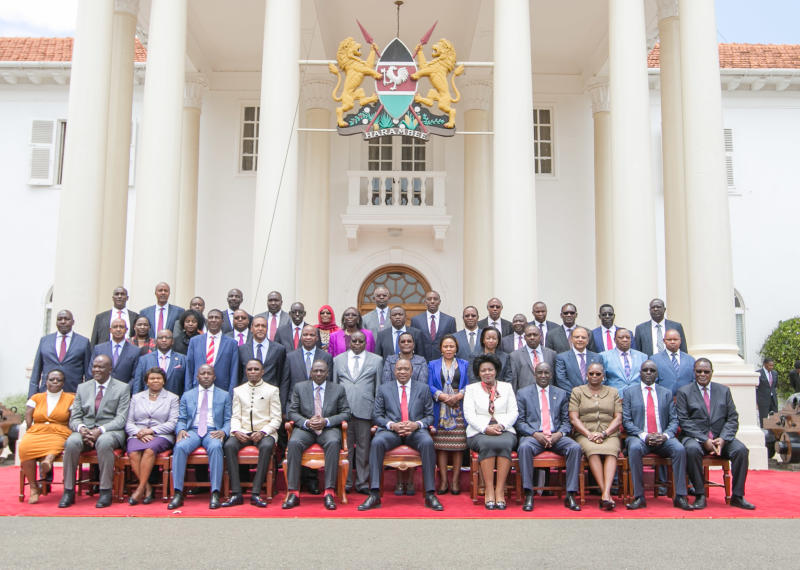×
The Standard e-Paper
Stay Informed, Even Offline

President Uhuru Kenyatta, Deputy President William Ruto with Cabinet Secretaries, Chief Administrative Secretaries and Principal Secretaries after their swearing-in at State House, Nairobi in 2018. [Courtesy]
A friend recently wondered why anyone holding a good job could resign to join politics. She was reacting to resignations of people from the public service following the February 9, 2022 deadline that urged public servants wishing to contest in the general election to resign.